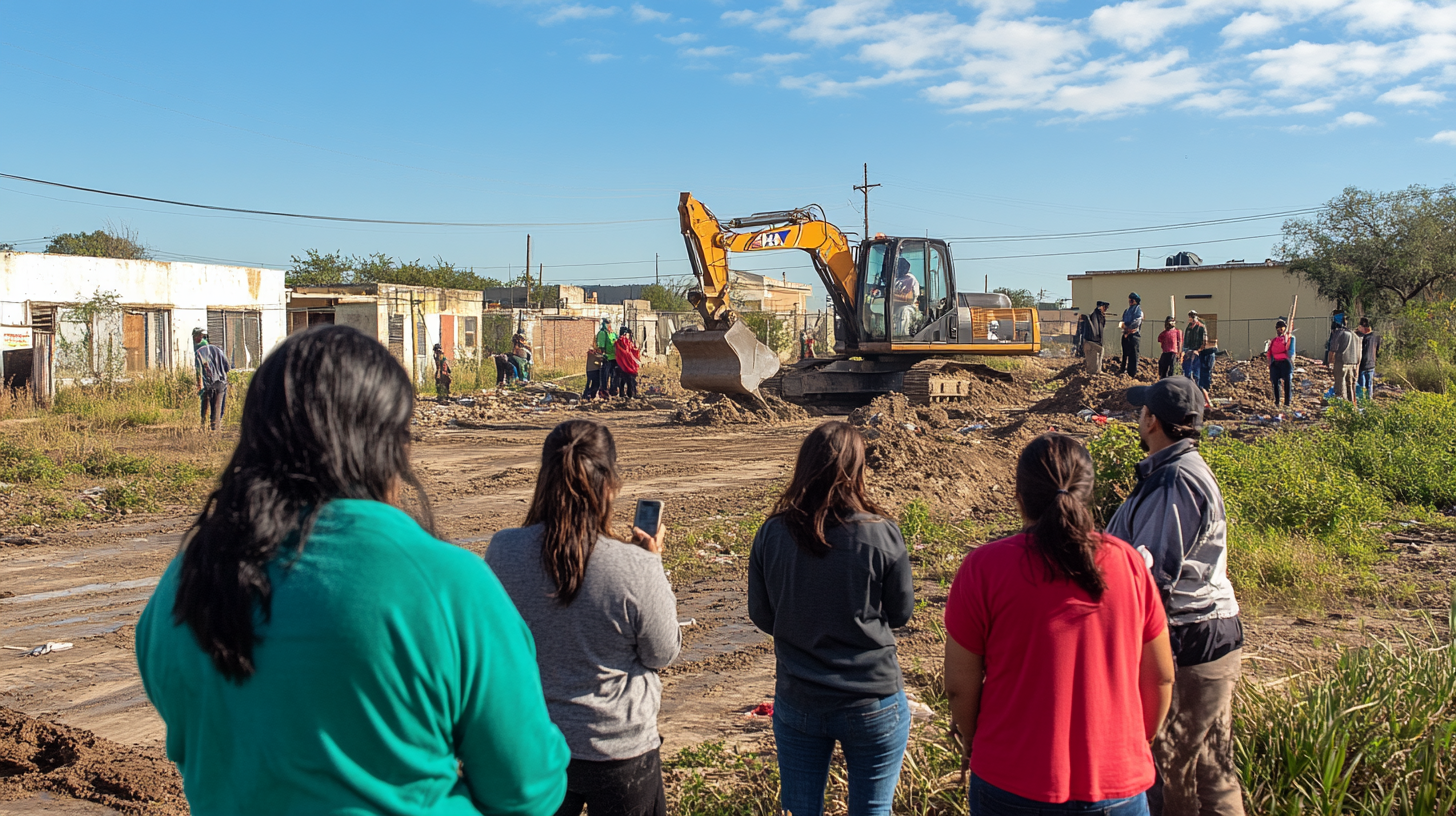Illegal Dumping of Construction Materials in Brownsville Sparks Community Concerns
In a case that underscores the ongoing challenges of waste management and environmental responsibility in the Rio Grande Valley (RGV), authorities have charged Israel Rodriguez for illegally dumping approximately 30,000 pounds of construction material in Brownsville, Texas. This incident, centered around FM 802, has prompted discussions about the impact of illegal waste disposal on local environments and the wider community.
Details of the Incident
According to reports, the waste originated from a store at Sunrise Mall undergoing renovations. Instead of transporting these materials to a landfill, Rodriguez, owner of Corbelos Demolition Junk Removal Services, opted to dump them on private property. The Brownsville Police Department was alerted to the situation after the waste was reported on a Tuesday, which quickly led them to identify Rodriguez as the responsible party. Following the issuance of a warrant for his arrest, Rodriguez turned himself in to the police on a Friday morning and has since been released on bond.
Affected Community and Environmental Concerns
This incident highlights significant environmental concerns for Valley residents. Illegal dumping not only contributes to environmental degradation but also burdens local governments with the task of waste removal and remediation. Stephen Garcia, an environmental policy expert based in South Texas, points out, “Illegal dumping is not just a violation of law; it’s an affront to our collective commitment to preserving our environment. The costs extended to cleanup and enforcement strain local resources that could be better utilized in community development.”
The Valley’s proximity to diverse ecosystems, including wildlife habitats and water resources, makes illegal waste disposal a particularly pressing issue. Concerned residents have voiced fears about potential long-term effects on land value and community health, urgent issues in a region striving for sustainable growth.
Law Enforcement and Civic Responsibility
Brownsville Police Department Public Information Officer Abril Luna stated, “A warrant was obtained yesterday for his arrest after it was confirmed that it was his dumping in somebody else’s property.” This swift action by law enforcement highlights their dedication to maintaining community standards and acting on violations that threaten public and environmental welfare.
Community members are being urged to report any sightings of illegal dumping promptly. Residents are reminded of the legal options available for waste disposal, stressing the importance of complying with regional regulations.
A Part of Broader Local Issues
This event does not exist in isolation; it’s a symptom of larger waste management challenges faced by the Valley. The rapid urbanization and population growth in South Texas necessitate robust solutions to waste management issues. This highlights the need for concerted efforts from local officials, businesses, and residents to collectively address and solve illegal dumping problems.
Historically, illegal dumping has been a recurring issue in parts of the RGV, linked to an increase in business activities and insufficient waste handling facilities. The local authorities’ proactive enforcement in this context exemplifies their awareness of the recurring nature of such problems, signaling a desire to deter future incidents effectively.
Potential Solutions and Moving Forward
Addressing this issue comprehensively requires both short-term actions and long-term strategies. Increased awareness campaigns and public education on the consequences of illegal dumping can play a crucial role. In addition, investing in accessible waste disposal facilities and developing incentives for proper waste management is crucial.
Rodriguez’s case acts as a pivotal event, highlighting the need for the community to reconsider waste policies and enforce existing ones rigorously. Encouragingly, local authorities have reaffirmed their commitment to closely reviewing current waste management protocols and strengthening compliance mechanisms.
With the eyes of the community and the support of dedicated environmental groups, there’s an opportunity to turn the incident into a catalyst for positive change. The dialogue it creates may extend to the implementation of more sustainable practices benefiting the entire region.
Getting Informed and Taking Action
Residents interested in more information about waste disposal regulations and reporting violations can contact the Brownsville Public Works Department. Community involvement in reporting and preventing illegal dumping is critical and ensures that efforts to protect the RGV continue collaboratively and effectively.
This incident, while troubling, serves as a reminder of the importance of environmental stewardship for the Valley, emphasizing our collective responsibility to foster a cleaner and more sustainable future.







